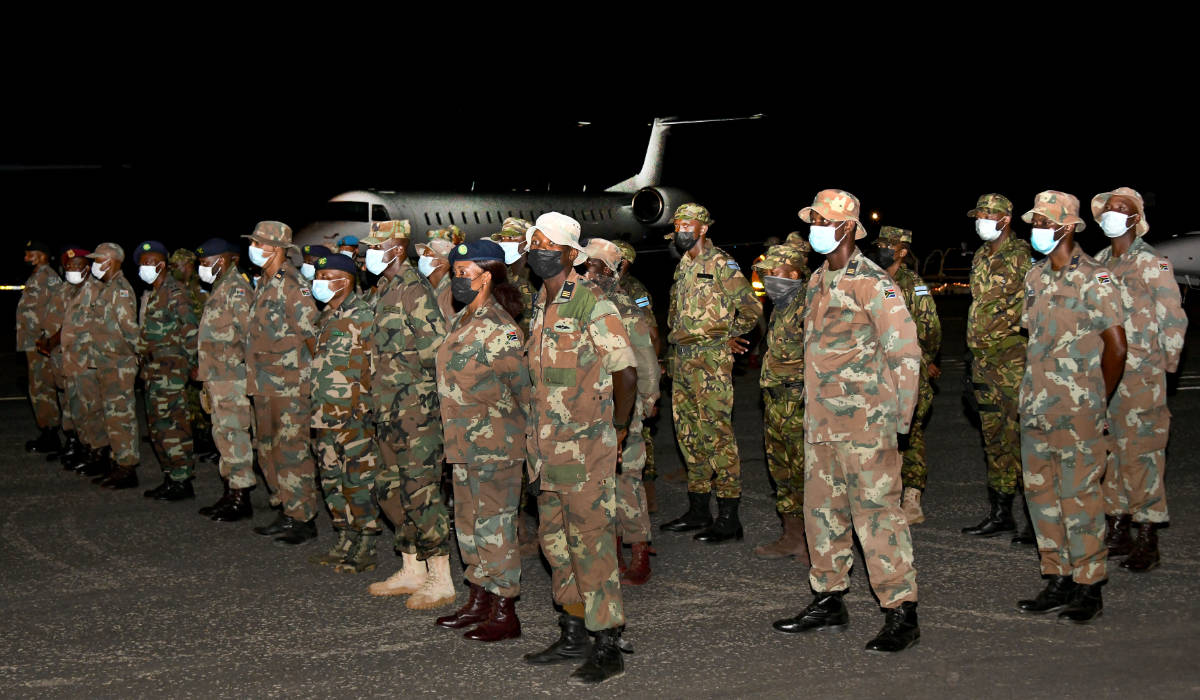The Southern African Development Community (SADC) Mission in Mozambique (SAMIM) has been present in Mozambique since June 2021. Prior to its deployment, discussions among peace operations scholars and practitioners centred on the mission’s feasibility, given SADC’s lack of experience in counterterrorism operations and concerns about the organisation’s financial capacity to sustain a prolonged mission. This paper intends to illustrate that the SAMIM mission is unique in its pragmatic approach to peace operations and counterterrorism. Using the concept of pragmatic peace operations and the empirical evidence of SAMIM, the paper argues that the principles behind its practice could mark a new generation of peace operations.
So far, SAMIM has registered some positive accomplishments; including recapturing villages, dislodging terrorists from their bases and seizing weapons and warfare material, which has contributed to creating a relatively secure environment for safer passage of humanitarian support. Additionally, some members of the community are feeling more secure and some internally displaced persons have started to return.
It is fitting to ask what has contributed to the relative success of SAMIM in Mozambique so far. I will argue that it may be due to SAMIM’s pragmatic approach to peace operations. Pragmatic peace operations refer to a type of multilateralism where member states are ‘reduced to implementing lowest common denominator policies’ and ‘prioritising conflict containment over more ambitious agendas.’ Pragmatic peace operations are a shift towards practical and context-specific peace operations. This is a move away from ambitious liberal peace operations which have been the dominant form of peace operations since the end of the Cold War. They are characterised by their flexibility, relationality to regional politics, and their adaptability and collaboration. In a broader sense, pragmatic peace operations are innovative and aim to experiment with new approaches to conflict management, including more robust interpretations of peace operations and an increasing reliance on regional actors as providers of peace.
So far, SAMIM has registered some positive accomplishments; including recapturing villages, dislodging terrorists from their bases and seizing weapons and warfare material, which has contributed to creating a relatively secure environment for safer passage of humanitarian support.
Tweet
The SAMIM model provides an apt empirical description of the pragmatic peace operations concept. It is a regional initiative that was recognised by the Peace and Security Council (PSC) on 31 January 2022, when the Council endorsed SAMIM’s deployment as part of the African Standby Force (ASF). This is one of the characteristics of pragmatic peace operations. In SAMIM’s case, they had to rapidly assemble a regional intervention force and contain the situation before it could spill-over and destabilise other countries in the region. SAMIM’s response also shares other pragmatic peace operations characteristics such as its relationality to the conflict and its flexibility and adaptability to the situation. Lastly, SAMIM fits the pragmatic peace operations description because it has been self-funded. It is estimated that the initial budget was US$12 million which was accessed from SADC member states. This is a significant commitment, and a commendable show of African agency, taking into account that in many other regions African countries are seeking financial support from partners for their peace operations.
Therefore, this arrangement is rather a unique model for ‘African solutions for African problems.’ A number of factors have contributed towards this pragmatic turn. Firstly, the world order is becoming multipolar, with new peace operations actors, interests, and political values. Power and influence are most likely to be wielded not only by numerous sovereign states, but also by a multiplicity of different actors with alternative identities, values, and institutions. Within such a context, reaching a consensus on peace operations mandates is hard to achieve in the United Nations (UN) Security Council and other multilateral bodies. Therefore, regional actors are stepping up and taking responsibility for security in their own neighbourhood. Secondly, the failure and withdrawal of the United States in Iraq and Afghanistan has led to the critical examination of the liberal approach to counterterrorism and counterinsurgency interventions. Last but not least, the scaling down of UN peace operations, the cutting of its budget and the growing discord in the Security Council has contributed to regional actors taking more responsibility for their own peace operations.
In SAMIM, SADC has shown that regional actors are able to plan, mandate, deploy and fund their own operations. The philosophy behind SAMIM’s pragmatic approach is the sense of regional ownership of security crises that is both flexible and adaptive.
Tweet
Should the SAMIM model be emulated in other theatres of conflict? The answer is that every peace operation is unique. Every peace operation presents its own unique setting and mandate. Therefore it is not possible to replicate one peace operation mission in another context. However, what can be emulated are the practices and philosophy behind the SAMIM model. In SAMIM, SADC has shown that regional actors are able to plan, mandate, deploy and fund their own operations. The philosophy behind SAMIM’s pragmatic approach is the sense of regional ownership of security crises that is both flexible and adaptive.
The SAMIM mission is still on going. Celebration of any successes are premature. At this point, it is unclear how far the host government has gone in dealing with the root causes to ensure sustainable peace when SAMIM withdraws. In addition, SAMIM forces were complimented by Rwandan forces whose contribution should also be recognised. What should be celebrated so far is the fact that they are both African owned initiatives with African enshrined security initiatives.
Chikondi Chidzanja is a PhD Candidate at Stellenbosch in Political Science. His research area is on SADC peace operations and counterterrorism.


